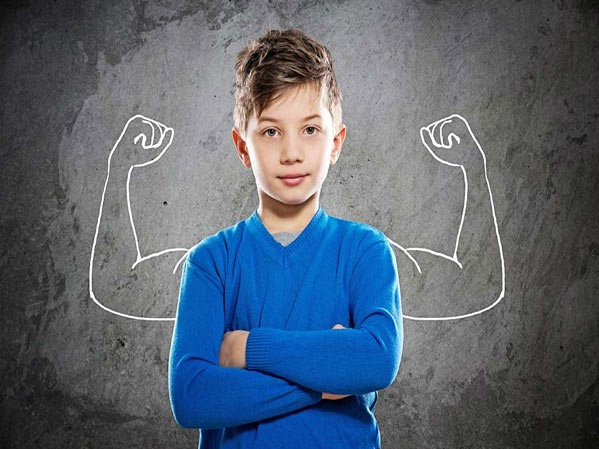Fars news agency community group; Human mood and body are changing from the beginning of birth to the last moments of life due to many factors, including instinctive, environmental, cognitive factors, and experiences gained throughout life. A newborn baby does new things and shows different reactions every day until it emerges from the water. It should be said that this is not only for children. Humans witness changes in their appearance and inside throughout their lives, but because they have grown up and think that they will not change anymore, they do not notice their changes. But in some stages of life, these changes are very visible and tangible.
Adolescence is one of the most important periods in which human personality is formed. We sat down to talk with Dr. Azadeh Sohrabi, psychologist and researcher, to examine the mood and type of thinking during adolescence and how parents behave towards their teenagers.
Do you explain about developmental and personality characteristics in teenagers?
At first, I must say that some developmental and personality traits among teenagers are universal. Theorists who examine the characteristics of people from childhood to adolescence, youth or even middle age reach some universal and common human characteristics that most people in that generation perform those behaviors and name them according to those characteristics. they do. Generations X, Y, Z and Alpha are named in the same way.
Now our teenagers are in Generation Z group. They are children of the Internet and virtual space and have experienced mostly virtual communication and not much in real communication. The thing that is in between is that despite the common characteristics of Generation Z all over the world, the characteristics of these children are different in different countries. For example, the characteristics of Iranian teenagers are different from American teenagers. The characteristics of American teenagers are different from European ones.
What is the reason for this difference?
Every country in the world has different cultural foundations. Values and norms are different in every country. The way of thinking of the citizens of each country is different from that of its neighboring country. Of course, another criteria for categorizing these generations is the environmental factors that researchers and theorists use because an event or an environmental factor is influential in the formation of generational characteristics in a country, continent or even the world. For example, the occurrence of World War I and II, which was the beginning of an attitude and lifestyle among the countries of the world.
Why do theorists categorize generations based on behavioral characteristics and moral characteristics of adolescents?
Because adolescence is the beginning of identifying and forming the personality of a person and a generation. By examining the characteristics of teenagers, the future of a country and the world can be predicted.
Three distinct characteristics in teenagers
How do teenagers think?
As we said, Generation Z children are Internet children. One of the things that cyberspace does is to increase the illusion phase in teenagers. Teenagers have three distinct characteristics, including that they have an imaginary audience; They have personal legends and are more prone to depression than other age groups.

How do these features appear?
Having an imaginary audience means that teenagers think they are the center of the universe and that everyone is watching them. They think that everyone is zooming in on them and watching them when they go out or appear in a crowd. This is one of the reasons that make teenagers go for strange and different clothes and appearances from the society’s culture. A teenager decides to get a tattoo on his body or a special hairstyle because he thinks that everyone is paying attention to him. Even they like to look different from their peers because they want to look different from their friends.
Teenagers have a strong interest in attracting the attention of others. During the Corona period, this characteristic of teenagers was very evident and this generation used masks the least. Because they thought that if they use a mask, their appearance will be ruined.
Having a personal legend also means that they think they are the best and most attractive person on the planet. There is no one more powerful than them and they can conquer the whole world. Why does the teenager feel this way? Because he is full of energy and he is just choosing a goal for himself. This characteristic of teenagers is related to their sense of uniqueness.
Also, due to hormonal changes and two other characteristics, they are more prone to depression than other age groups, and the combination of these three characteristics creates a critical situation for teenagers.
Injuries caused by personal myth in adolescents
What harm does a personal legend do to a teenager?
A personal myth can do a lot of damage to children. They may do anything to answer their inner feeling and need. To say that I am unique or not vulnerable, they may turn to cigarettes, drugs, unhealthy groups, etc. and say that no one gets addicted by smoking a few cigarettes, but this is a crude fantasy.Also, teenagers always face two conflicts.
Fertility and recession, two conflicts of adolescence
What are these two conflicts and how does it make a teenager feel?
Adolescents in this age period are between two conflicts. The fundamental task of the teenager is to gain identity. Loyalty, my strength is this stage. Erikson says: the conditions to reach this strength are provided by solving the crises of fundamental trust, self-management, initiative and creativity in the earlier stages of development, and it is by successfully passing the stages of earlier ages that a person can go through the process of identity formation in adolescence properly. Fertility is growth, development and acquisition of different skills and moods, and stagnation is exactly the opposite of fertility. Adolescents should be able to create a balance between these two conflicts. The feeling of commitment, loyalty, compassion, etc. in life arises from the heart of these two conflicts, which makes the teenager enter the higher stages of life and be able to form a life and a family. If the teenager cannot experience these conflicts and crises properly, he cannot be a committed person in life. He cannot commit to his job. He can’t even start a family.
The influence of parents in solving adolescent conflicts
What can be done to solve this conflict?
At this stage, the type of society, family and parents are very important. Teenagers should be guided indirectly because there is no direct way to guide this generation of society. The first thing parents should do is to interact constructively with their child. They should allow their teen to experience what they are thinking about. But they should be by his side and listen to the problems and mistakes of the teenager calmly and in a good and constructive tone. For example, if their child wants to tattoo his body, talk to him. But I emphasize that this guidance should be very calm and peaceful. If a teenager is spoken to in a harsh tone and in a commanding and forbidding manner, the result may be the opposite, and the teenager may act out of stubbornness and secretly put his thoughts into action and harm himself.

The second thing the family should do is to provide a safe environment for their teenager. So that the teenager feels safe with his family. Unfortunately, many teenagers and young people consider the outside environment and their friends to be safer than their family and suffer from problems and injuries such as addiction. Families should allow their children to experience as long as they are not harmed. If he experiences what he thinks in his mind, he will doubt. When he experiences his passions, he says to himself, is this the way I have taken right or wrong?
What are the consequences of ignoring teenagers?
What are the consequences of ignoring teenagers by parents?
What adults generally do is to ignore and suppress the needs of teenagers. Adolescents are prone to rebellion and damage due to the changes that happen inside them, and ignoring them makes them a rebellious generation. As I said before, visibility is the need of this generation. We must understand them, see them and be the right guide for them. Of course, it should be noted that this guide is not only parents, but society, school, family, good friends, cyberspace, etc., each of them can be a good guide.
Does cyberspace help teenagers?
Cyberspace is not always bad. We are passive in the cyberspace and therefore we cannot protect our children from the negative aspects of the cyberspace.
Is ordering and forbidding a teenager a good solution?
In this matter, neither excess nor exaggeration is good. What parents do and don’t do to the child all the time is harmful. Also, not saying it hurts the teenager. A balance must be established between the two.
Parents should be good listeners. They should ask their child to explain his opinion and taste and say why he likes a dress, sport, color, etc. and what is the purpose of choosing it?
What should be done if the teenager still insists on doing something after being guided?
What is the reason for the teenager’s insistence on doing something after repeated guidance from parents?
Let’s look realistically, if the teenager insists on doing his own work, parents can’t do anything. They may consider a series of punishments for their child, but it does not give a definitive answer. If the parents give the child enough independence, give the right guidance, establish a peaceful relationship, but still the teenager is aggressive and insists on doing what he wants, the child probably has a deeper problem, and in this case, the parents should act before the child gets hurt. Take him to a counselor.
The best time to avoid teenage mistakes
When is the best time to mentor teenagers?
As we said, informing, talking, listening to the needs, understanding our children, having a peaceful relationship and creating a safe environment is the best way to take care of teenagers. But the best time to do this is before adolescence and during childhood. Parents should be able to attach their child during childhood. They should treat their child in such a way that they are the main guide of the teenager. But generally, parents think during a crisis (12-13 years old) and look for a solution, but it’s still not too late and whenever you take a fish out of the water, it’s fresh. In times of crisis, you can avoid many mistakes of teenagers with proper care and behavior.
end of message/

